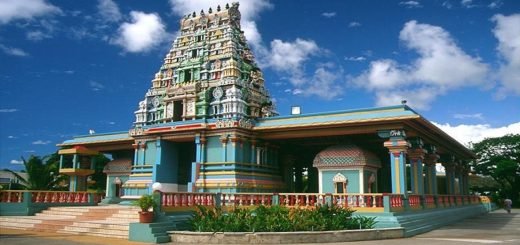5th India-China Strategic Economic Dialogue (SED)
The 5th India-China Strategic Economic Dialogue between National Institution for Transforming of India (NITI) Aayog and National Development and Reform Commission (NDRC), People’s Republic of China was held in Beijing, China on April 14th, 2018. The Indian side was led by Dr Rajiv Kumar, Vice- Chairman, NITI Aayog and the Chinese side was led by He Lifeng, Chairman of Development and Reform Commission, People’s Republic of China. The Ambassador of India to China Gautam Bambawale was also present in the Dialogue.
The Indian delegation led by Vice Chairman, NITI Aayog included senior officials from NITI Aayog as well as Ministries of New and Renewable Energy, Railways, Housing and Urban Affairs, Electronics and Information Technology, industry and autonomous bodies. The Chinese delegation comprised of officials from the different department of NDRC as well as the Chinese Ministries, representatives of China’s Provinces – Liaoning, Hebei and Jiangsu, researchers and industry representatives.
India-China Strategic Economic Dialogue (SED) provides an important platform for both sides to discuss key economic issues impacting both countries and areas of mutual interest. The Dialogues have played a positive role for the two countries to seize opportunities, enhance mutual trust, expand consensus, strengthen strategic coordination and cooperation, and boost sustainable economic development.
The Indian government is deepening reform to build a friendly environment for businesses and manufacturing industry. The foreign investment policy in India welcomes foreign capital and with improving the business environment, India has emerged as an attractive investment destination.
The five Working groups– in the areas of Infrastructure, High-Tech, Energy, Resource Conservation and Policy Coordination – on 13th April 2018 reviewed the progress made so far and had a discussion on areas for further cooperation and collaboration.
Read: Pakistan prevents Sikh pilgrims from meeting Indian High Commissioner and staff
The Working Group on Policy Coordination discussed in detail the areas of mutual cooperation, including mutual investments. The possible collaboration with some of the provinces in China in the economic field was also discussed. Both sides would be indicating areas where one’s industry has been facing difficulties in promoting their business operations in the other country and expect the other side to have a mechanism to speedily resolve those problems.
The Working Group on Infrastructure discussed various areas of cooperation, including setting up of manufacturing units by Chinese companies in India instead of just selling the products. This is feasible considering huge demand in India and growth in India’s eco-system can be used to export the railway products from India.
In the area of information technology and electronic hardware manufacturing, India and China have different competitive advantages which create many opportunities for cooperation. National Association of Software and Services Companies (NASSCOM) highlighted the opportunities for cooperation between India and China in the domain of High Technology in areas such as smart cities, digital payments, smart manufacturing. Both Sides exchanged ideas in the fields of information technology, high-tech manufacturing industry and telecommunication, shared insights and views on technology innovation, industry situation and future development trend, and held an in-depth discussion on strengthening fields’ cooperation.

5th meeting of India-China Strategic Economic Dialogue | Image: India in China (Twitter)
Both sides reviewed the cooperation progress since the mechanism of SED initiated in the area of Resource Conservation and Environmental Protection and agreed to cooperate in the areas of waste to energy, wastewater treatment, desalination, promoting reuse of tertiary treated water, water usage efficiency and related areas, and to further explore areas for collaboration in resource conservation sector.
The Working Group on Energy observed the deep engagements between two countries in the energy sector. India has taken up an ambitious programme of renewable energy and would seek partnership with China in R&D and manufacturing. Both Sides agreed for further cooperation in renewable energy promotion including wind and solar power and for speeding up of cooperation in solar cell/module manufacturing in India.
The representatives from the government, enterprises and research institutions will conduct field investigations and related meetings to promote the implementation of the achievements of this SED. Both sides also discussed the possibility of aligning the Make in India Initiative and Made in China 2025. Indian side took this opportunity to express concerns regarding growing trade imbalance with China and huge untapped potential of India’s exports to China by addressing market access issues.
The two sides agreed that the 6th SED will be held on mutually convenient dates in India.
Source: MEA, Indian Mission in Beijing Chetna Maibam & Mukhi The Kootneeti Team - China & Central Asia


















